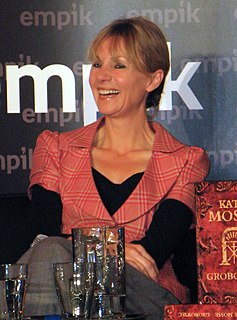A Quote by Sara Sheridan
Historical fiction of course is particularly research-heavy. The details of everyday life are there to trip you up. Things that we take for granted, indeed, hardly think about, can lead to tremendous mistakes.
Related Quotes
These are young people who made mistakes that aren't that different than the mistakes I made and the mistakes that a lot of you guys made, we have a tendency sometimes to almost take for granted or think it's normal that so many young people end up in our criminal justice system. It's not normal. ... What is normal is teenagers doing stupid things.
I remember reading an interview with a writer who said that in nonfiction if you have one lie it sort of messes it up. But in fiction the real details give you so much more credibility, because people do so much research just to write fiction. In fiction you're trying to recreate something lifelike.
Cultural concepts are one of the most fascinating things about historical fiction. There's always a temptation, I think, among some historical writers to shade things toward the modern point of view. You know, they won't show someone doing something that would have been perfectly normal for the time but that is considered reprehensible today.






































